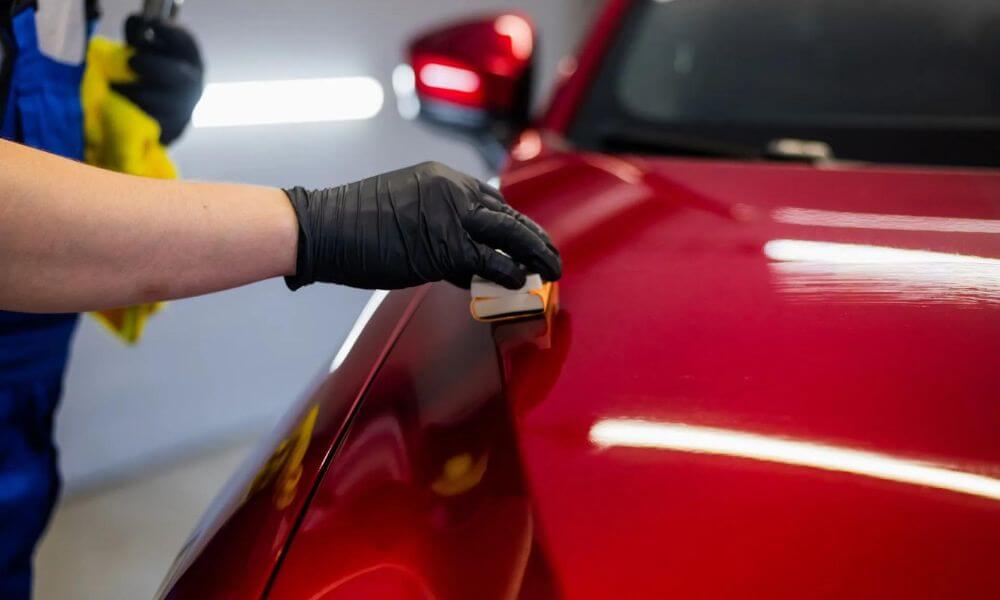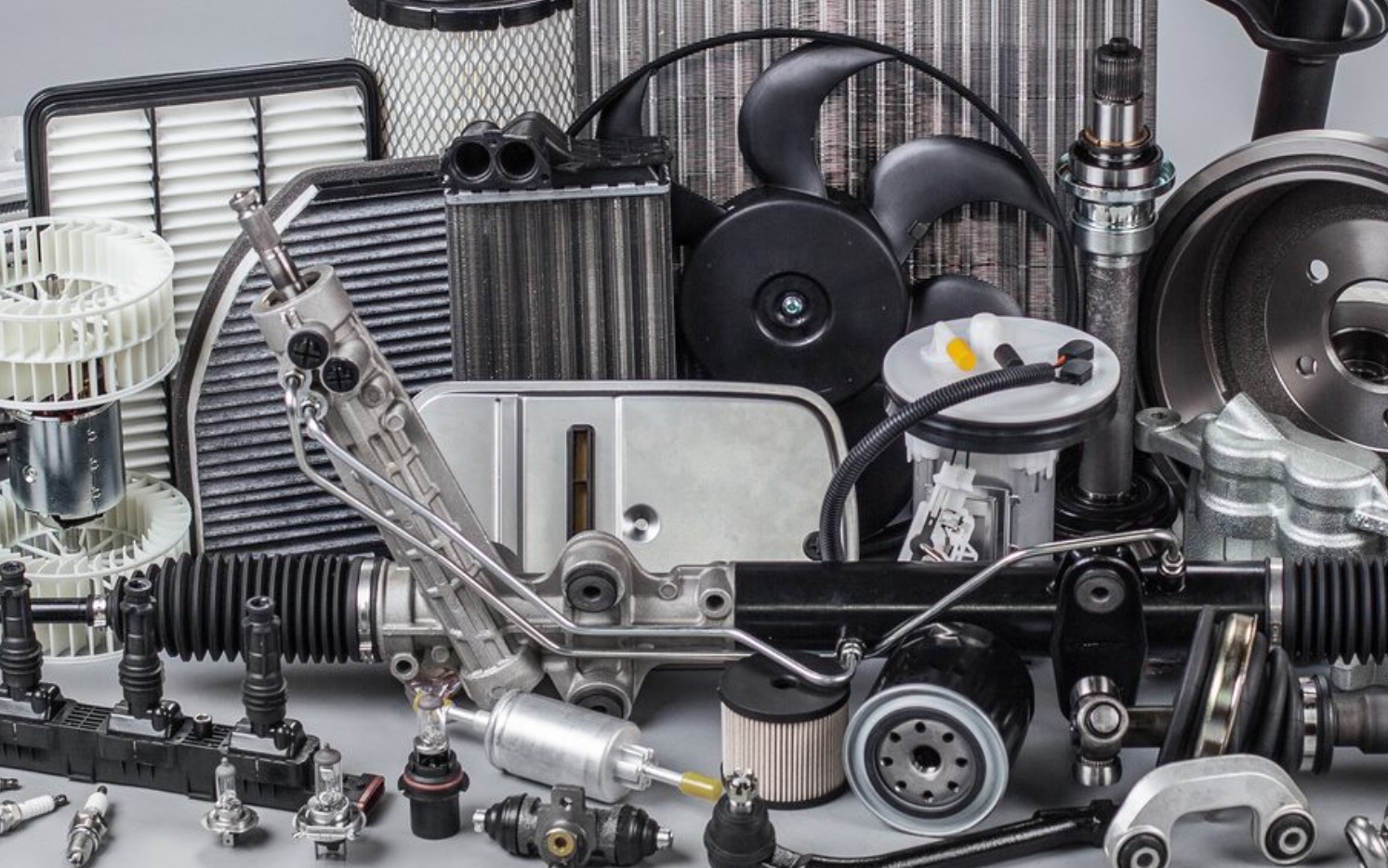5 Strange Noises Your Car Makes and What They Mean

That sudden, unsettling squeal as you brake, the mysterious clunk from underneath your car, or even a persistent rattle that seems to be coming from somewhere near the rear—we’ve all been there. Those strange noises our vehicles make can send shivers down our spines, triggering a wave of anxiety. You’re left wondering, “Is it safe to drive? How much is this going to cost?” Often, we ignore them, hoping they’ll just vanish, like a bad dream. But here’s the truth: those sounds are your car’s way of communicating, and ignoring them can lead to serious problems, both for your safety and your wallet. Imagine the frustration of finally taking that rattling car to the muffler shop, only to discover the issue was a loose heat shield that could have been fixed weeks ago, saving you both time and stress. Or worse, what if that ignored squeal was a warning sign of failing brakes? This blog will explore 5 unusual car noises, explain their potential causes, and suggest appropriate actions. So, listen up, and let’s decode your car’s cryptic language, ensuring you know when it’s time to head to the mechanic, or even just the local muffler shop, for a quick and necessary check-up.
Noise 1: High-Pitched Squealing or Screeching
Imagine a piercing, high-pitched squeal or screech that accompanies your braking or even occurs while driving. This is a common, and often alarming, sound.
Possible Causes:
Worn brake pads or rotors:
The wear indicators on brake pads are designed to produce this sound when they need replacing.
Slipping serpentine belt:
This belt powers many engine components and can squeal when worn or loose.
Power steering pump issues:
Low fluid or a failing pump can cause a similar noise.
Potential Consequences of Ignoring:
Brake failure:
Compromised brakes are a major safety hazard.
Engine damage:
A broken serpentine belt can lead to overheating and other engine problems.
Loss of power steering:
Making the vehicle hard to control.
Recommended Action:
Immediate inspection by a mechanic is crucial. Don’t delay!
Noise 2: Grinding or Clunking from Underneath
A grinding or clunking sound emanating from beneath your car is never a good sign. It often indicates problems with the car’s undercarriage.
Possible Causes:
Suspension problems:
Worn bushings, ball joints, or struts can create these noises.
Drivetrain issues:
Problems with CV joints, the differential, or the transmission.
Exhaust system problems:
Loose or broken components.
Potential Consequences of Ignoring:
Loss of vehicle control:
Compromised suspension can affect handling.
Damage to other components:
Untreated drivetrain issues can spread.
Serious safety hazard.
Recommended Action:
Prompt inspection by a mechanic is essential, especially if you feel any changes in the car’s handling.
Noise 3: Ticking or Clicking from the Engine
A rhythmic ticking or clicking sound coming from the engine compartment can be concerning.
Possible Causes:
Low engine oil:
Insufficient lubrication can cause valve train noise.
Valve train issues:
Problems with lifters or rockers.
Exhaust manifold leak:
A leak can produce a ticking sound.
Piston slap.
Potential Consequences of Ignoring:
Engine damage or seizure:
Lack of lubrication can severely damage engine components.
Reduced engine performance.
Recommended Action:
Check your engine oil levels immediately. If the ticking persists after ensuring proper oil levels, consult a mechanic.
Noise 4: Whirring or Humming While Driving
A consistent whirring or humming sound that changes with your speed can point to several issues.
Possible Causes:
Wheel bearing failure:
Worn wheel bearings often produce this noise.
Transmission or differential issues:
Problems within these components.
Tire problems:
Uneven wear, or tire damage.
Potential Consequences of Ignoring:
Wheel failure:
A failing wheel bearing can lead to wheel detachment.
Transmission failure:
Costly repairs or replacement.
Uneven tire wear, or tire blowouts.
Recommended Action:
Inspection by a mechanic is necessary, especially if the noise changes with speed or when turning.
Noise 5: Rattling or Banging from the Exhaust Area
A rattling or banging sound coming from the rear of your car usually involves the exhaust system.
Possible Causes:
Loose heat shield:
These shields can become loose and vibrate.
Damaged catalytic converter:
Internal damage can cause rattling.
Broken exhaust hangers:
The supports that hold the exhaust system in place.
Potential Consequences of Ignoring:
Exhaust leaks:
These can be dangerous and reduce fuel efficiency.
Reduced fuel efficiency.
Potential fire hazard.
Recommended Action:
A mechanic should inspect the exhaust system at a trusted muffler shop.
Those strange noises your car makes aren’t just annoying – they’re vital clues about its health. Ignoring them can lead to costly repairs and, more importantly, put your safety at risk. By understanding these 5 common noises and their potential causes, you’re better equipped to take proactive steps. Remember, when in doubt, consult a qualified mechanic. For example, if you hear that telltale rattling from the rear, don’t just assume it’s a minor annoyance. A quick visit to your local muffler shop could reveal a loose heat shield, a damaged catalytic converter, or a broken exhaust hanger, preventing a potentially dangerous exhaust leak or even a fire hazard. Similarly, other noises, like those indicating brake or engine trouble, require immediate professional attention. Preventative maintenance is the key to a safe and reliable vehicle. So, listen to your car, learn its language, and don’t hesitate to seek expert advice, whether it’s a general mechanic or a specialized service like a muffler shop. By addressing issues promptly, you’ll save yourself headaches, money, and ensure a smooth, safe ride for years to come.



